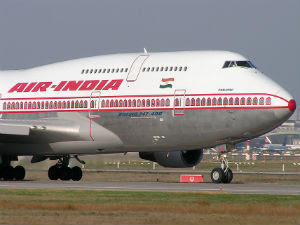 சென்னை: இந்திய கிரிக்கெட் ஒளிபரப்பு மற்றும் வீடுகளுக்கான டிஜிட்டல் உரிமை ஆகியவற்றை ரூபர்ட் முர்டோச்சுக்கு சொந்தமான ஸ்டார் தொலைக்காட்சி குழுமம் வென்றுள்ளது என்று பிசிசிஐ தலைவர் என்.ஸ்ரீனிவாசன் அறிவித்துள்ளார்.
சென்னை: இந்திய கிரிக்கெட் ஒளிபரப்பு மற்றும் வீடுகளுக்கான டிஜிட்டல் உரிமை ஆகியவற்றை ரூபர்ட் முர்டோச்சுக்கு சொந்தமான ஸ்டார் தொலைக்காட்சி குழுமம் வென்றுள்ளது என்று பிசிசிஐ தலைவர் என்.ஸ்ரீனிவாசன் அறிவித்துள்ளார்.இந்திய ஒளிபரப்பு உரிமைக்காக 4 நிறுவனங்கள் போட்டியிட்டன. இதில் ஸ்டார் குழுமம் 6 ஆண்டுகளுக்கு இந்த உரிமையை ரூ 3851 கோடி செலவில் பெற்றுள்ளது. 2012 ஜூலையில் இருந்து 2018 வரை இந்த உரிமம் ஸ்டார் குழுமத்துக்கு சொந்தமானது.
1 போட்டிக்கு ரூ 40 கோடி என்ற சராசரியில் 96 போட்டிகளுக்கான உரிமத்தை ஸ்டார் குழுமம் பெற்றுள்ளது.
இதன்மூலம் 2018ம் ஆண்டு வரை இந்தியாவில் நடக்கும் சர்வதேச கிரிக்கெட் போட்டிகளை ஸ்டார் டிவி ஒளிபரப்பலாம்.
இந்த உரிமையைப் பெற சோனி டிவியும் மோதியது. ஆனால், வெல்லவில்லை. ஐபிஎல் போட்டிகளை சோனி தான் ஒளிபரப்பவுள்ளது என்பது குறிப்பிடத்தக்கது.




























